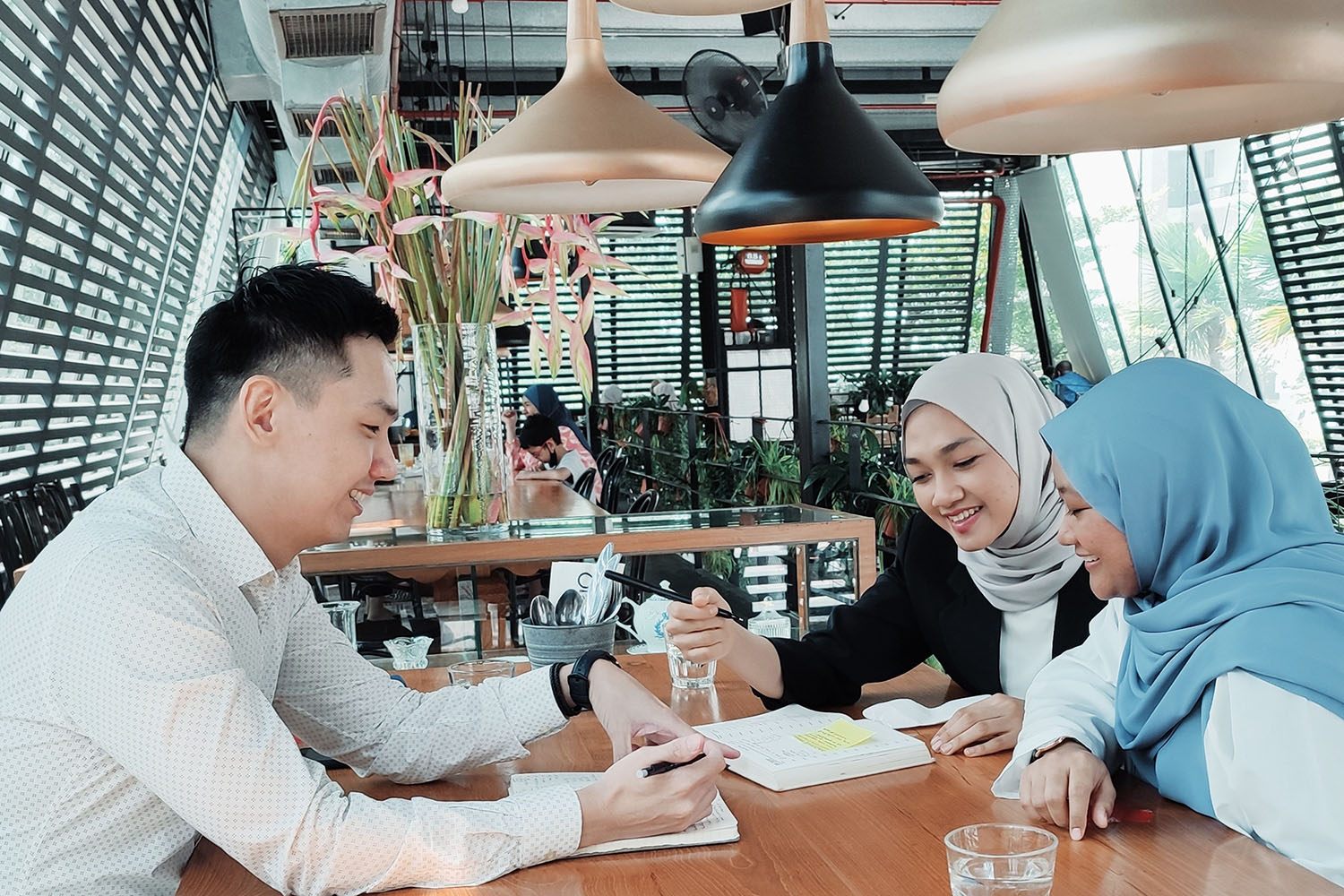In the five years he’s headed up NanoTextile, CEO Thomas Ong Poh Shing has driven its transformation from “a textile technology and innovation start-up” to a business that is renowned within the industry.

That’s an industry that has revolutionised clothing manufacture by embedding nano-sized particles or fibres into textiles, thereby enhancing fabric in terms of stain repellency, tensile strength, durability, fire retardancy and antimicrobial properties.
Since its establishment in 2015, NanoTextile has explored the potential of this nanotechnology for textiles and spearheaded its development. Over the last couple of years, Thomas says that this has meant a pioneering push of nanotechnology into “textile downstream industries” – namely garment and apparel product manufacturing.
“We have built our business around technology, innovation, and specialism. This is what makes us different from the rest of the textile industry players.”
Today, the company produces nanotextiles for use in five fabric sectors – clothing, home interiors, industry, medical, and sports and leisure. Now, as the first Malaysian company to tap into this innovative approach, NanoTextile is a business that stands out from the competition with a success strategy that is set on meeting demand for tech-textiles and smart fabrics.
“We have built our business around technology, innovation, and specialism. This is what makes us different from the rest of the textile industry players,” Thomas says. “With our technologies, we deliver functional, customer-focused products that are value-added to keep our clients competitive through better quality and the latest technology.”
But the end vision is much larger.

Future focus
“NanoTextile is committed to providing industry leaders with the nanotechnology necessary to grow the textile and fashion landscape in Malaysia in a more advanced, tech-savvy, and sustainable way,” Thomas explains.
He believes the market will grow at a double-digit rate by 2024. “We use a wide range of technologies for capturing customers’ spending power,” Thomas says. “We also offer the greatest range of products, focusing on functional textiles.”
NanoTextile’s continued success will, Thomas believes, come down to the commercialisation of the technologies involved. “It’s crucial to ensure their adaptation in textile segments and create a new value chain of demand and supply,” he says, explaining that NanoTextile is working hand-in-hand with local fashion brands to grow the awareness of technical textiles among consumers.
That’s not to say there won’t be challenges along the way but fortunately, Thomas has the ability to remain calm, no matter the curveball.
“I am able to understand a certain issue very objectively. Decision-making in a company is like surviving a maze. There are times when the right direction is obvious. Others when you’ve got to decide what the best turn is, keeping our goal in mind.”
These strategic moves need to be free of emotion, Thomas adds. “There’s a switch in our brains I can always control – the emotional switch. I know when to switch it off because I choose to.”
Strong leadership
On top of his naturally calm personality, Thomas believes working in diverse industries with multicultural business partners has nurtured his leadership style and strengths.
“Being part of a Japanese company, for example, has instilled a systematic approach in me while my experience in other fields also allows me to adapt to the arrival of functional textiles. I am able to put myself in the shoes of a B2C while running a B2B company in the durable clothing industry.”
It’s this multi-level experience that enabled Thomas to build string relationships with the company’s suppliers.
“I choose the conventional trust-building route when engaging with our business partners. Perhaps it’s more important than sales and revenue,” he says. “It’s easier to grow and nurture our business by putting human values above our services. It is not easy to restore human values once they are lost.”
Investing in building trust has been even more important during the pandemic which hit the company “very violently”, Thomas adds.
“We want to make our customers smile and ensure they stay relevant in the market.”
“I reminded my employees to stay positive despite this hard time,” he says. “Instead of pivoting, we retracted and shifted our focus to strengthen our foundation and fundamentals. We joined with international media partners in content development that cuts across all fashion segments, supply chains and the advancement of new technologies.”
COVID-19 also offered a new opportunity and challenge to the business; that of fulfilling the demand for protective fabrics. This included pairing with Volvo Malaysia to manufacture antimicrobial face masks, with a Malay batik pattern.
As for the future, Thomas will be striving for further stand-out innovations in nano-embedment technology and textile finishing. NanoTextile’s mission is simple, he says. “We want to make our customers smile and ensure they stay relevant in the market.”
Culture of integrity
“Culture is vitally important at NanoTextile and is based on teamwork, openness and innovation. “It’s a young and contemporary casual company,” says Thomas. “Our values guide the decisions we make with an emphasis on both what is important and what is right. At NanoTextile, we prioritise professionalism, punctuality and politeness but our overarching aim is to act always with integrity.”


